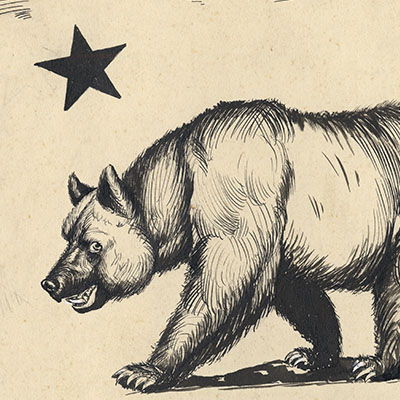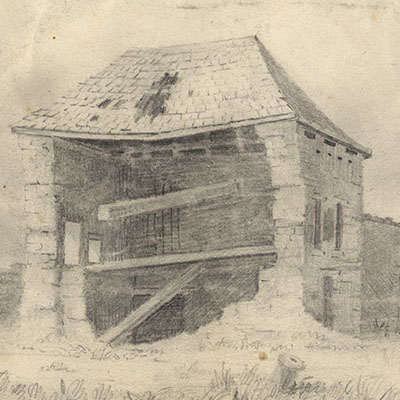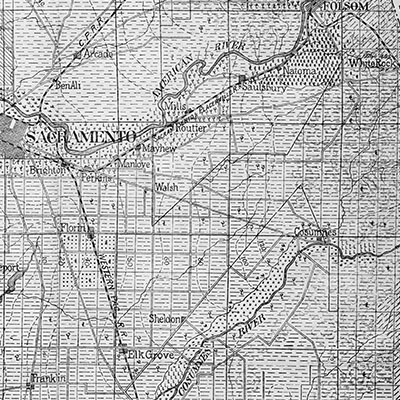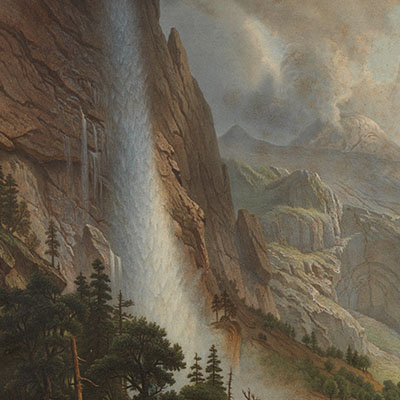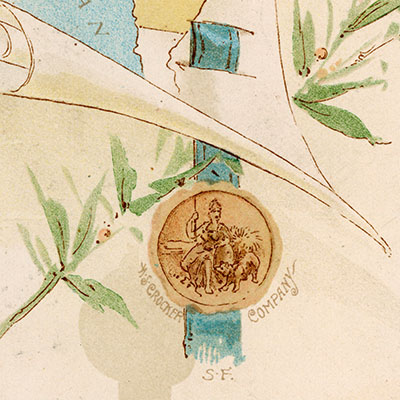The influx of people seeking their fortunes in California displaced both the original inhabitants and earlier settlers. Violence, starvation, and disease caused substantial population decline in California Native peoples. Mining activities and rapid settlement decreased California’s biodiversity, contaminated waterways, and left lasting scars on the landscape. The arrival of thousands of Americans ushered in a new government that increased the power of the most recently arrived and led to California becoming the 31st state on September 9, 1850.
California’s wealth led to additional federal interest and support. In 1864, President Abraham Lincoln signed a bill — inspired by a desire to preserve and protect California’s remaining natural landscape — granting Yosemite Valley and Mariposa Grove to the state to preserve for public use. In 1906 the area became part of Yosemite National Park, and today California has more national parks than any other state.
With growth of federally supported railroads, markets for California agriculture opened and by the 1870s, agriculture replaced gold mining as the state’s leading industry. To protect this, hydraulic mining was eventually banned. The railroads also allowed the state’s population numbers to continue to swell, California became a destination spot for adventure-seeking tourists, and railroad companies actively promoted travel to California.
While focus turned away from mining relatively quickly, the Gold Rush remains a part of California’s identity. The state’s motto, “Eureka,” meaning “I have found it” and likely referring to the gold discovery, has appeared on the state seal since 1849. California’s official State Nickname, designated in 1968, is “the Golden State.” Yet even as California has thrived and become, for many, a model and a beacon, the state has yet to fully reckon with a past that encompasses its near-genocide of Native peoples, exclusion of Chinese Americans, efforts to suppress rights of African Americans, and destruction wrought by extractive industries. But people have proved resilient, with diverse voices insisting on their right to be and to be heard. It is only through such reckoning that California will be able to do justice to its potential and truly be the Golden State for all.
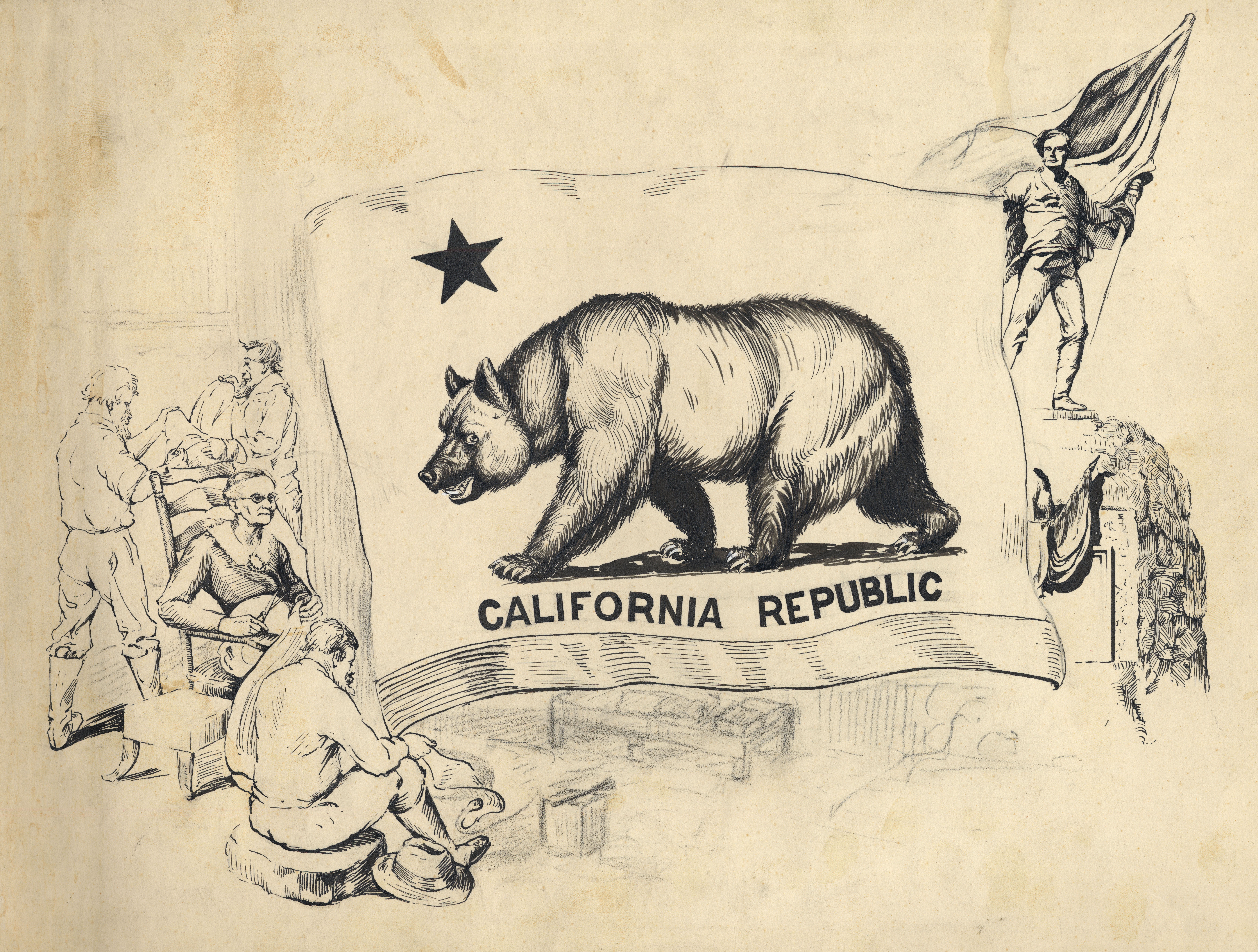
California Republic Flag
The flag used by the California Republic, a group of American immigrants to Northern California who rebelled against the Mexican government in 1846, inspired California’s current official state flag. This undated pen, ink, and pencil drawing shows men and women creating and displaying the California Republic flag. While California became a state in 1850, the contemporary state flag was not adopted until 1911.

Pen Used by Pablo de la Guerra to Sign the California Constitution of 1849
Pablo de la Guerra represented Santa Barbara as a delegate to the First California Constitutional Convention, and used the pen shown here to sign the 1849 California Constitution. He later served in the State Senate and as the state’s Acting Lieutenant Governor.
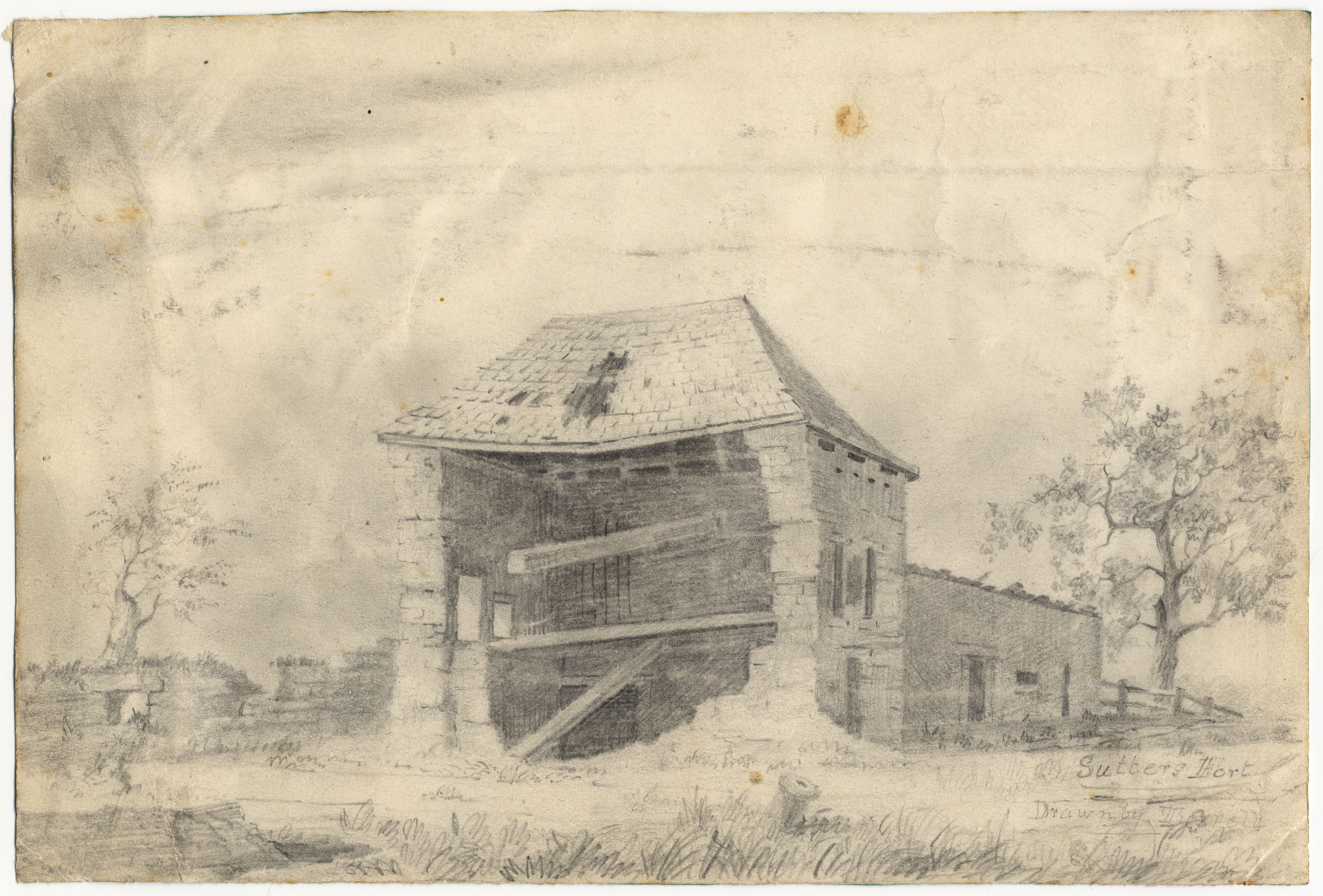
Sutter’s Fort, 1855
Gold seekers overran John Sutter’s properties shortly after the discovery of gold at Sutter’s Mill by James Marshall, and Sutter’s Fort was soon abandoned. Drawn by W. Tyrell in 1855, this drawing depicts the empty buildings of Sutter’s Fort already in ruin.
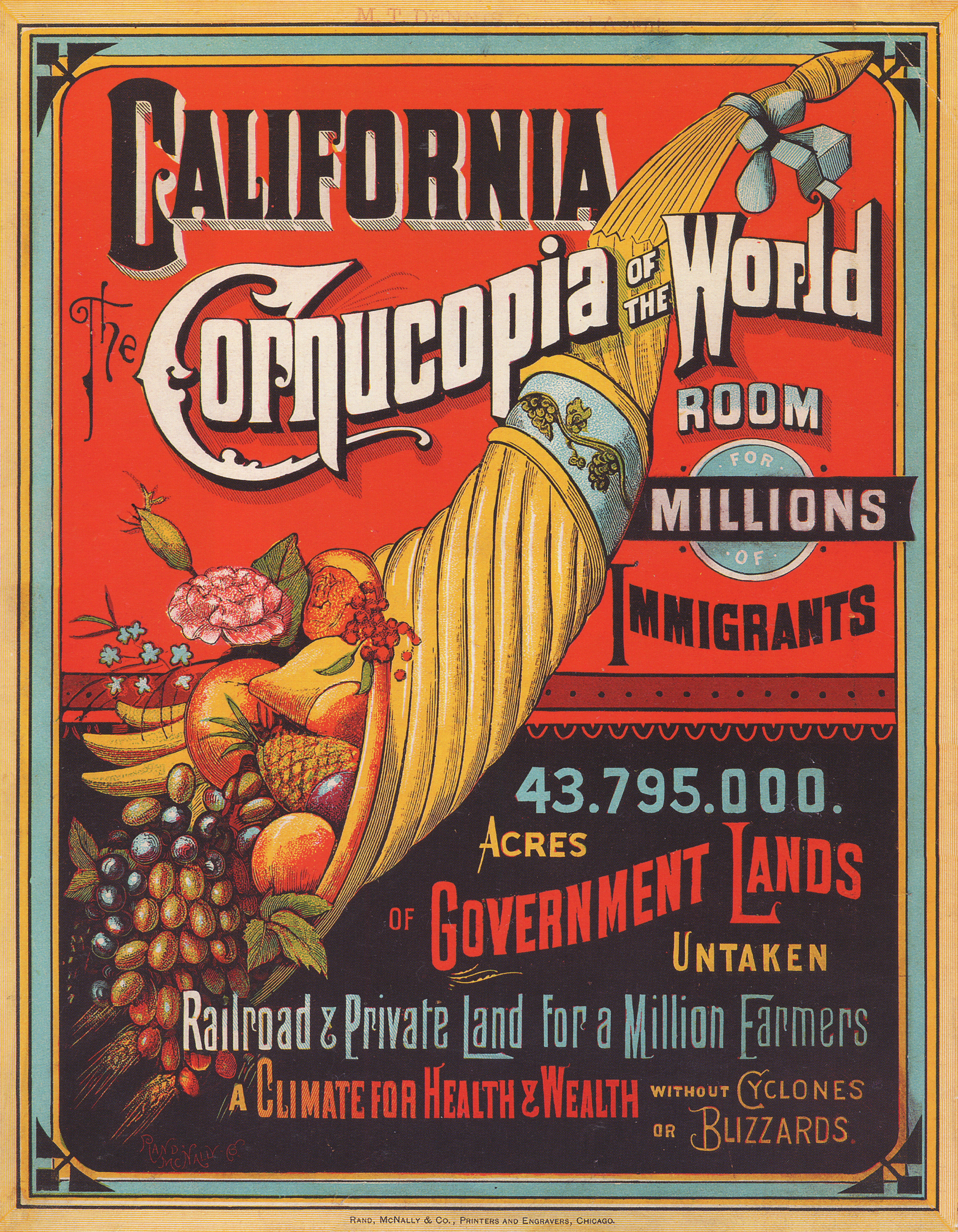
California, the Cornucopia of the World
Agriculture replaced mining as the leading industry in California. This illustration created by the California Immigration Commission in 1885 advertised “room for millions of immigrants, 43,795,000 acres of government lands untaken, railroad and private lands, for a million farmers, a climate for health and wealth, without cyclones or blizzards.”
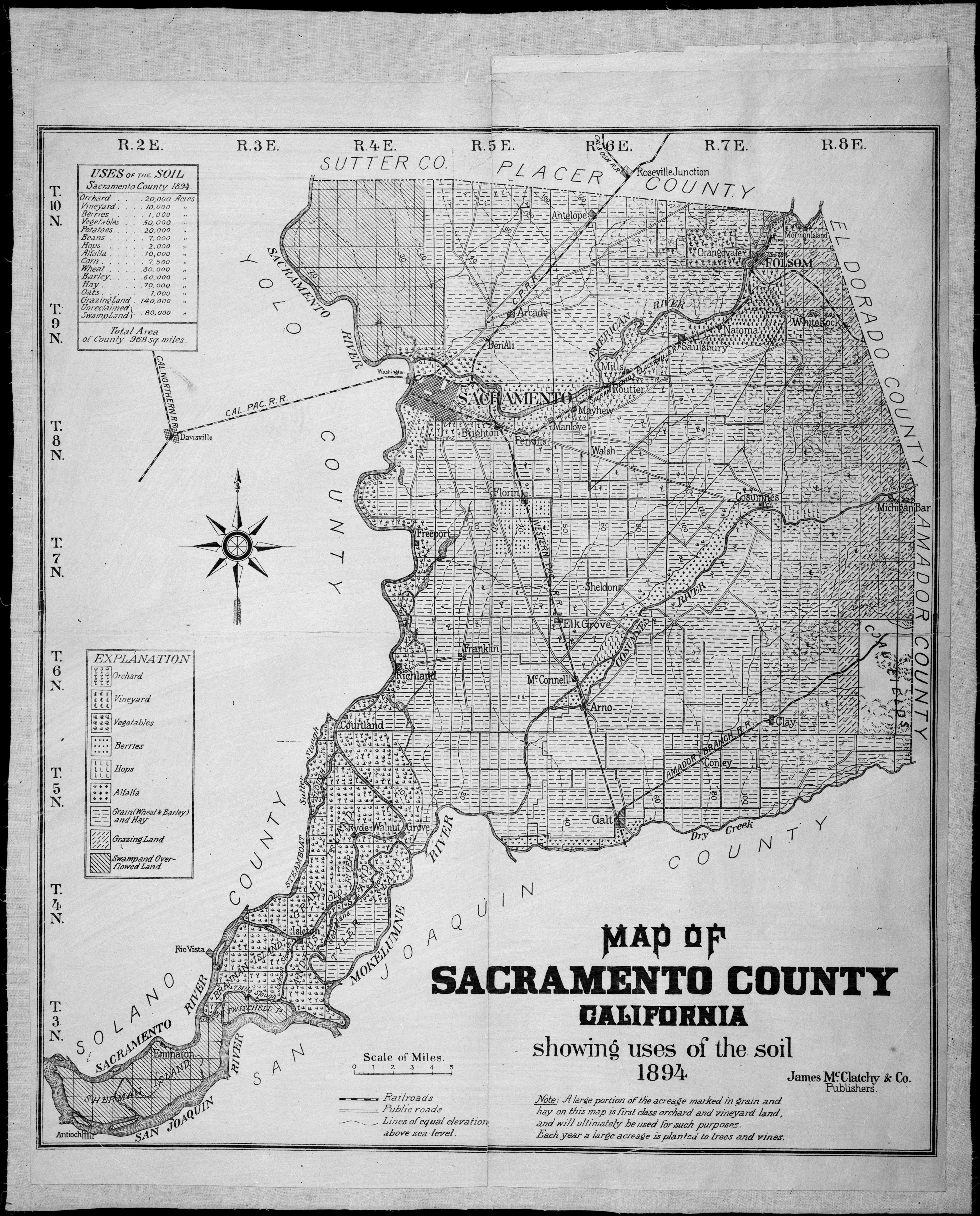
Map of Sacramento County, California: Showing Uses of the Soil
By the end of the 19th century, agriculture dominated areas that were once actively mined for gold. This 1894 map illustrates the wide variety of crops grown in Sacramento County, including fruits, vegetables, hops, and other grains.
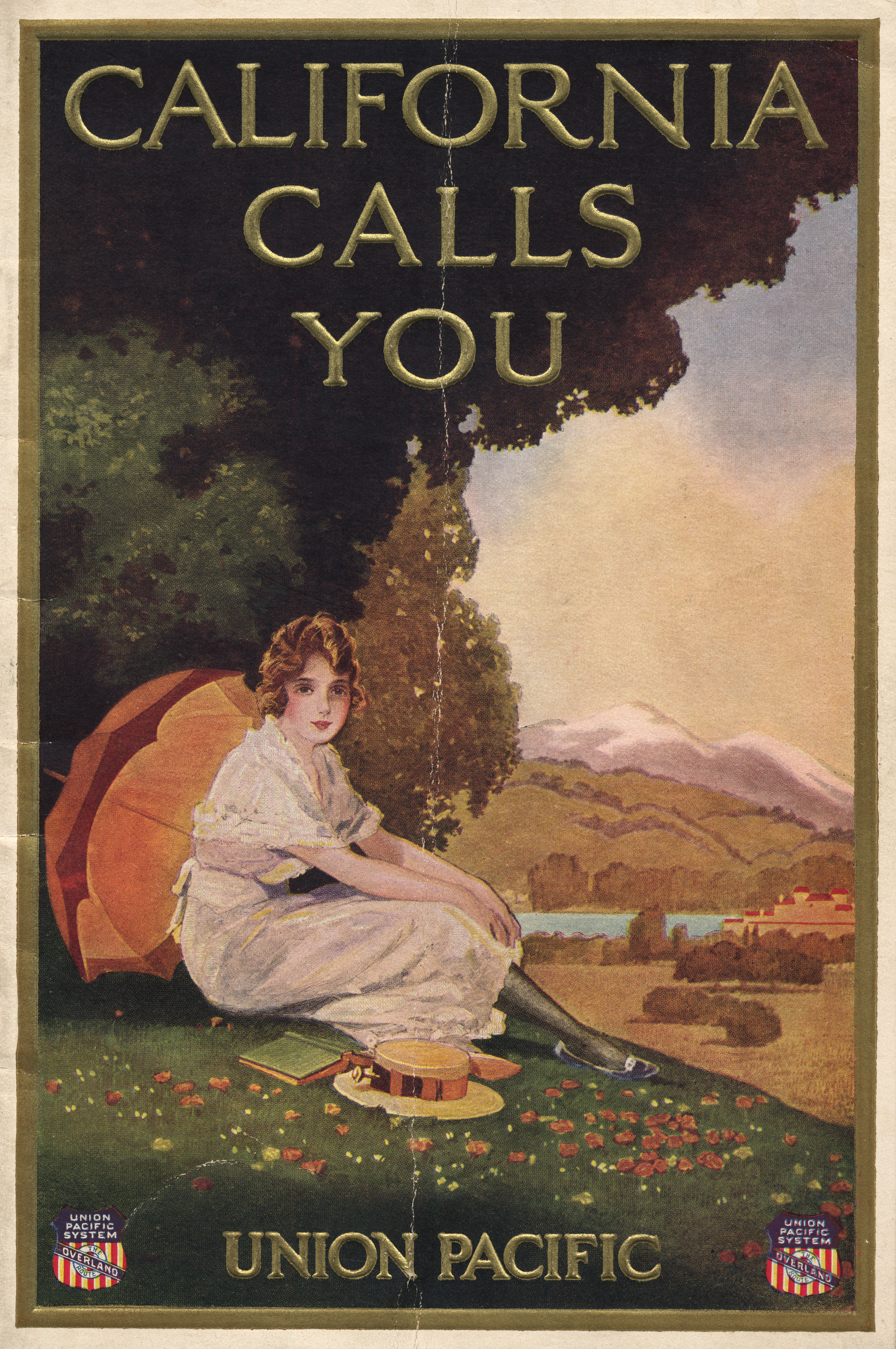
California Calls You, 1922
The Gold Rush ushered in an era of mass migration to California. The first transcontinental railroad was completed in 1869, enabling more people to travel more quickly to the state. Improvements in the speed and comfort of transportation made tourism possible, and railroad companies actively promoted California as a destination for travelers. This promotional travel booklet from the Union Pacific Railroad highlighted sights and cities of interest in California.
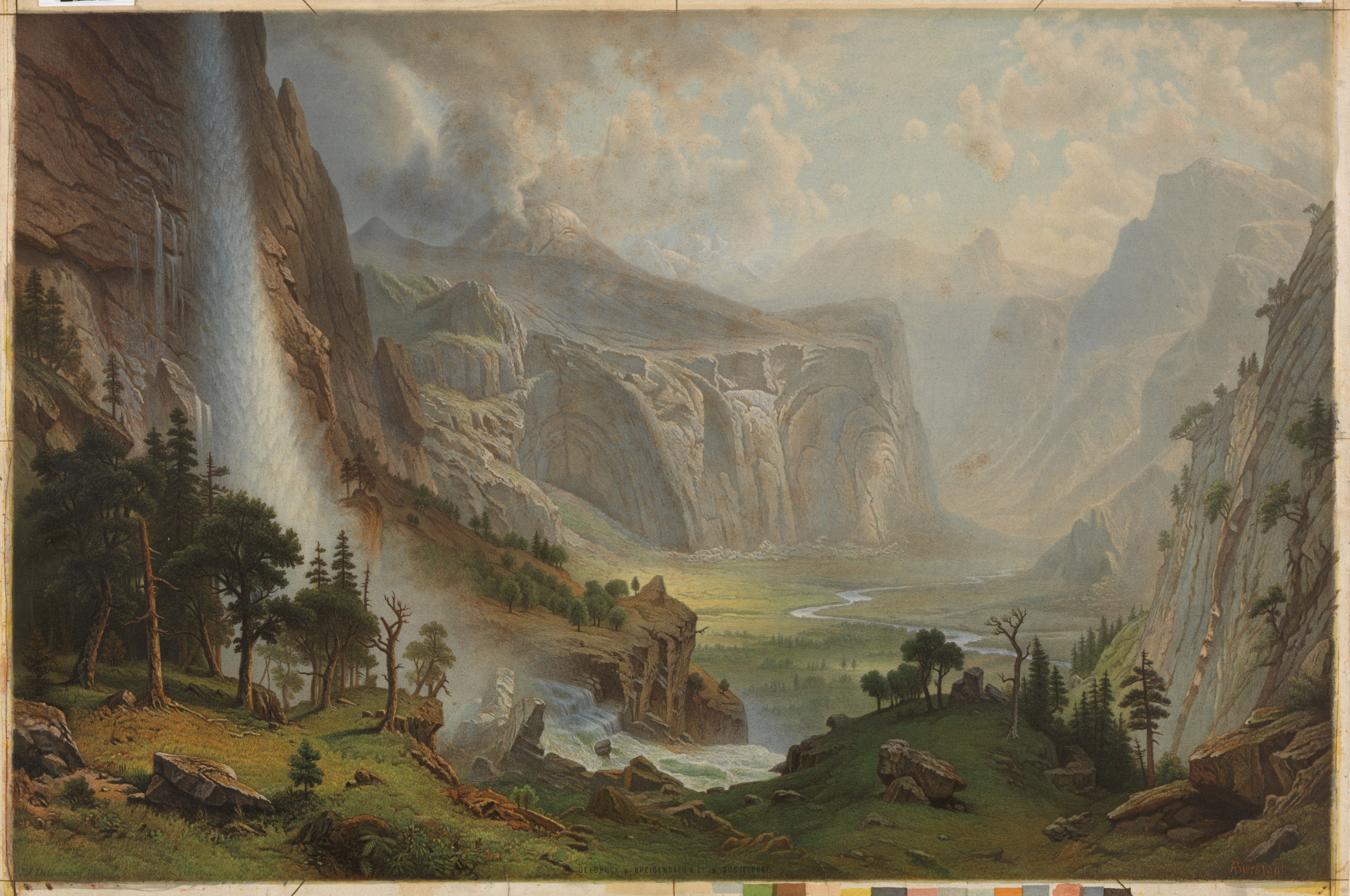
Yosemite Valley
The environmental devastation wrought by the Gold Rush led to efforts to protect California’s beautiful natural landscapes. In 1864, Yosemite Valley and Mariposa Grove were preserved for future public use. This print depicts Yosemite Valley derived from “The Domes of Yosemite,” an 1867 painting by A. Bierstadt and J.J. Dillmann.
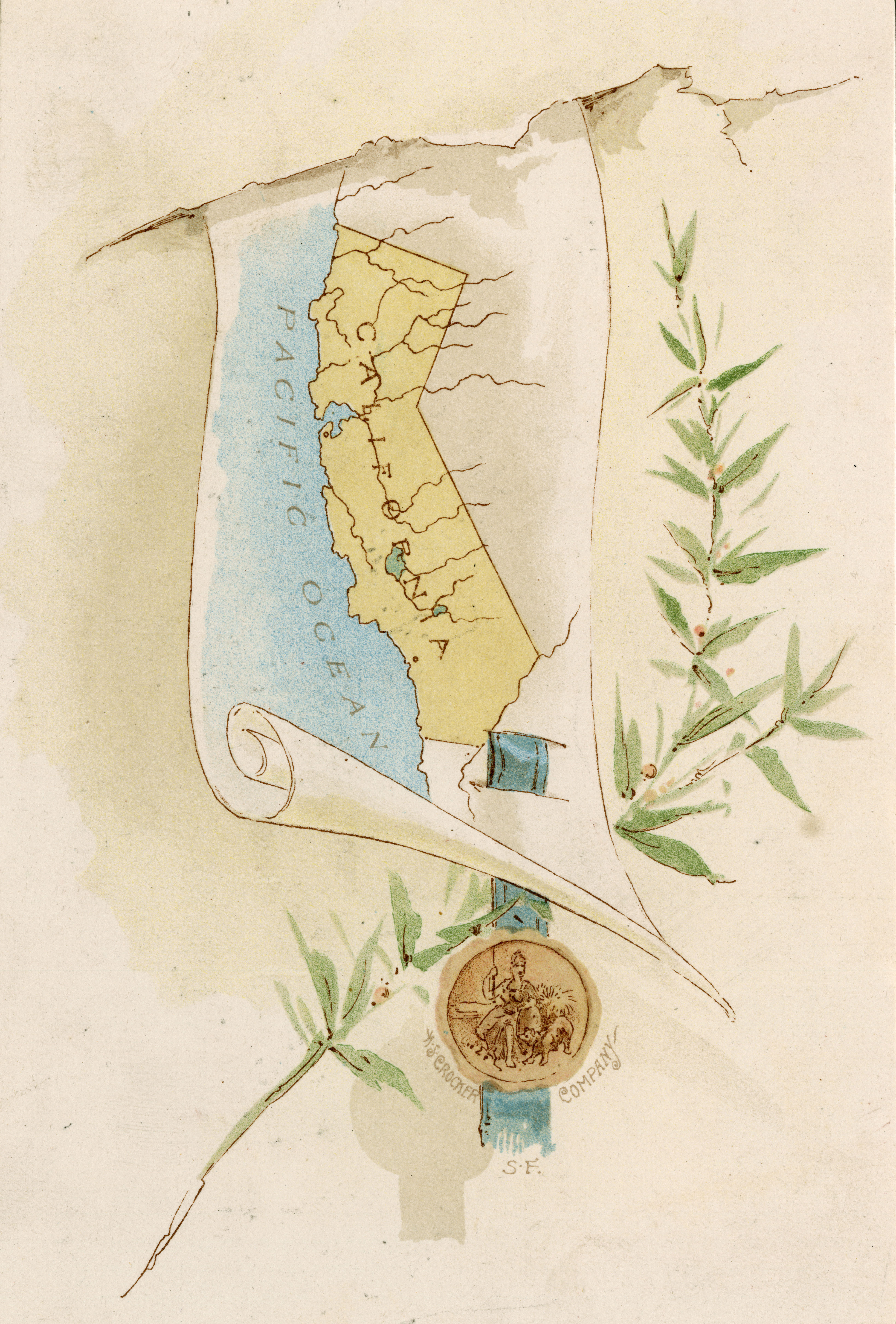
Map of California and State Seal
The discovery of gold became indelibly intertwined with California’s identity. The Constitutional Convention of 1849 adopted the Great Seal of the State of California, featuring the motto “Eureka,” or “I have found it.” This 19th century H.S. Crocker Company map, published in San Francisco, depicts California in yellow with the Great Seal visible in gold below.


